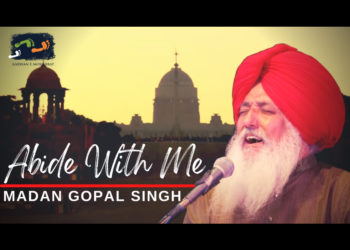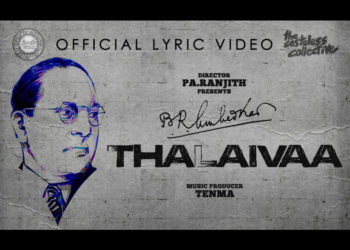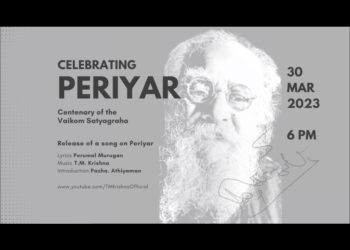
ಹೊಸ ತಲೆಮಾರಿನ ದಲಿತ ಯುವಕರು ಅಂಬೇಡ್ಕರ್ ವಿಚಾರವಾದದ ತಾತ್ವಿಕ ಹಿನ್ನೆಲೆಯನ್ನು ಅರ್ಥೈಸಿಕೊಂಡು ಆಧುನಿಕ ತಲ್ಲಣಗಳಿಂದ ಪ್ರೇರೆಪಿತರಾಗಿ ಸಾಮಾಜಿಕ ಸತ್ಯಗಳಿಗೆ ತಮ್ಮದೆ ಹೊಸ ಶೈಲಿಗಳಿಂದ ದ್ವನಿಯಾಗುತ್ತಿರುವುದು ಅಂಬೇಡ್ಕರ್ ಚಳುವಳಿಯ ನಿರಂತರತೆಯಾಗಿದೆ.
ಮಂಜು ಪ್ರಸಾದ್ ಮೂಲತಃ ದಾವಣಗೆರೆ ಜಿಲ್ಲೆಯ ಚನ್ನಗಿರಿ ತಾಲೂಕಿನ ಸಂತೇಬೆನ್ನೂರಿನ ಶಿವಪ್ಪ ಮತ್ತು ರೇಣುಕಮ್ಮನ ಏಕಪುತ್ರನಾಗಿ ಜನಿಸಿದ್ದಾನೆ.ತಂದೆ ತಾಯಿ ಶಾಲೆಗೆ ಹೋಗಿ ಅಕ್ಷರ ಕಲಿತವರಲ್ಲ ಅನಕ್ಷರಸ್ಥರು.ಮನೆಯಲ್ಲಿ ಕಿತ್ತು ತಿನ್ನುವ ಬಡತನ .ಅಂದು ದುಡಿದು ಅಂದೆ ತಿನ್ನುವ ಕುಟುಂಬ. ಒದಿನಲ್ಲಿ ಮುಂದಿದ್ದ ಮಂಜು ಪ್ರಥಾಮಿಕ ಮತ್ತು ಪ್ರೌಢ ಶಿಕ್ಷಣ ಸಂತೇಬೆನ್ನೂರಲ್ಲಿ ಮುಗಿಸಿ ದಾವಣಗೆರೆಯಲ್ಲಿ ಪದವಿ ವ್ಯಾಸಂಗ ಮಾಡುತ್ತಿದ್ದಾನೆ.ಪಾರ್ ಟೈಮ್ ಹಮಾಲಿ ಮತ್ತು ಕೂಲಿಕೆಲಸ ಮಾಡಿಕೊಂಡು ಒದುತ್ತಿದ್ದಾನೆ.ಪಿಯುಸಿಯಲ್ಲಿ ದಲಿತ ಚಳುವಳಿಯ ಪ್ರಭಾವ ಬೀರಿದ್ದರು ಪದವಿಯಲ್ಲಿ ಬಹುಜನ ಚಳುವಳಿ ಅವನ್ನನ್ನು ಆಳವಾಗಿ ಆಕರ್ಷಿಸುತ್ತದೆ .ಸಾಮಾಜಿಕ ಪರಿವರ್ತನಾಕಾರರಾದ ಬುದ್ದ.ಬಸವ.ಕಾರ್ಲ್ ಮಾರ್ಕ್ಸ್. ಲೆನಿನ್.ಮಹಾತ್ಮಾ ಜ್ಯೋತಿ ಬಾಪುಲೆ.ಶಾವುಮಹಾರಾಜ್.ಡಾ.ಬಿ.ಆರ್.ಅಂಬೇಡ್ಕರ್. ಕಾನ್ಷಿರಾಂ.ಪ್ರೊ.ಬಿ.ಕೃಷ್ಣಪ್ಪರವರ ಪ್ರಭಾವದಿಂದ ಚಳುವಳಿಯಲ್ಲಿ ತೊಡಗಿರುವ ಈತ ಇವುಗಳ ಬಗ್ಗೆ ಹಾಡು ಬರೆದು ಹಾಡುವ ಕಲೆಯನ್ನು ಮೈಗೂಡಿಸಿಕೊಂಡಿದ್ದಾನೆ.ಈತನ ಹಾಡು.ಚಳುವಳಿ.ಮತ್ತು ಬದುಕಿನ ಬಗ್ಗೆ ಕೇಳಿದಾಗ ಅನೇಕ ಸತ್ಯಗಳನ್ನು ಬಿಚ್ಚಿಟ್ಟಿದ್ದಾನೆ.
*ನೀನು ಹಾಡುವುದನ್ನು ಹೇಗೆ ಕಲಿತುಕೊಂಡೆ..?
ಮಂ;-ನಾನು ಚಿಕ್ಕವನಿದ್ದಾಗ ನಮ್ಮಮ್ಮ ಜನಪದ ಹಾಡುಗಳನ್ನು ಹೇಳುತ್ತಾ ನನ್ನ ಮಲಗಿಸುತ್ತಿತ್ತು.ನಮ್ಮ ಅಜ್ಜಿ ಸೋಬಾನೆ ಹಾಡುಗಾರ್ತಿ. ನಮ್ಮೂರಲ್ಲಿ ಯಾರದ್ದೆ ಮದುವೆಗಳಾದರೆ ನಮ್ಮಜ್ಜಿನೆ ಹಾಡುತ್ತಿತ್ತು.ನಮ್ಮ ಕೇರಿಯಲ್ಲಿ ಮಂಗಳವಾರ ಶುಕ್ರವಾರ ಬಂದರೆ ದೇವದಾಸಿಯರ ಚೌಡಿಕೆ ಹಾಡುಗಳು ಮತ್ತು ಜೋಗುತಿ ನೃತ್ಯಗಳು ನನ್ನನ್ನು ಹೆಚ್ಚು ಆಕರ್ಷಿಸುತ್ತಾ ಹೋದಂತೆ ನಾನು ಸಹ ಹಾಡಿನೊಂದಿಗೆ ಬೆರೆಯುತ್ತ ಹೋದೆ.ನಮ್ಮಪ್ಪ ತಮಟೆಯನ್ನು ತುಂಬಾ ಚನ್ನಾಗಿ ಬಾರಿಸುತ್ತಿದ್ದ ಇವೆಲ್ಲಾ ನಾನು ಹಾಡು ಕಲಿಯುವುದಕ್ಕೆ ಪ್ರೇರಣೆ ನೀಡಿದವು.ಮೊದಮೊದಲು ಜನಪದ ಗೀತೆಗಳನ್ನು ಹೇಳುತ್ತಿದ್ದೆ ನಂತರ ಪರಿವರ್ತನಾ ಗೀತೆಗಳನ್ನು ಹಾಡಲು ಶುರುಮಾಡಿದೆ.
2)ಅಂಬೇಡ್ಕರ್ ಚಳುವಳಿ ನಿನ್ನ ಮೇಲೆ ಯಾವ ರೀತಿ ಪ್ರಭಾವ ಬೀರಿತು…?
ಮಂ:- ನನಿಗೆ ಅಂಬೇಡ್ಕರ್ ಬಗ್ಗೆ ತಿಳಿದಿದ್ದು ಒಂಬತ್ತನೆ ತರಗತಿಯಲ್ಲಿ. ನಮ್ಮಣ್ಣ ನನಗೆ ಅಂಬೇಡ್ಕರ್ ಬದುಕಿನ ಭಯಾನಕ ಘಟನೆಗಳುನ್ನು ಹೇಳುತ್ತಿದ್ದ.ನಮ್ಮಣ್ಣ ದಲಿತ ಲೀಡರ್ ಆಗಿದ್ದ.ನಾನು ಎಂಟನೆ ತರಗತಿಯ ವಾರ್ಷಿಕೋತ್ಸವದ ಅಂಗವಾಗಿ ಜನಪದ ಗೀತೆಯನ್ನು ಹಾಡುತ್ತಿದ್ದೆ ಆಗ ಮೇಲ್ಜಾತಿ ಶಿಕ್ಷಕನೊಬ್ಬ ಅರ್ದ ಹಾಡಿಗೆ ನಿಲ್ಲಿಸಿ ಟೈಮ್ ಆಗಿದೆ ಸಾಕು ಎಂದು ಬೇರೆಯವರಿಗೆ ಅವಕಾಶ ಕೊಟ್ಟ ನನಗೆ ನಿರಾಶೆಯಾಯಿತು ಇದು ಬೇಕಂತಲೆ ಮಾಡಿದ ಘಟನೆ ಇದು ನನಗೆ ಬಾಳ ಪರಿಣಾಮ ಬೀರಿತು.ಜೋಗಮ್ಮರ(ದೇವದಾಸಿ) ಜೀವನಗಳು.ಅಮ್ಮ ಕೂಲಿ ಮಾಡುತ್ತ ನನ್ನ ಸಾಕುವ ರೀತಿ.ನನ್ನ ಅಪ್ಪನ ಮೇಲೆ ಮೇಲ್ಜಾತಿಯರ ದೌರ್ಜನ್ಯಗಳು. ಪರಿವರ್ತನಾ ಚಳುವಳಿಯ ಚರಿತ್ರೆ ನಾಯಕರ ಬದುಕಿನ
ಹೋರಾಟಗಳು.ಇವೆಲ್ಲವು ನನ್ನ ಅಂಬೇಡ್ಕರ್ ಚಳುವಳಿಯನ್ನು ಆಳವಾಗಿ ಮೈಗೂಡಿಸಿಕೊಳ್ಳುವಂತೆ ಪ್ರಭಾವ ಬೀರಿದವು.
3)ಇಂದಿನ ಯುವಕರ ಜವಾಬ್ದಾರಿ ಬಗ್ಗೆ ಏನು ಹೇಳುವರಾ..?
ಮಂ:- ಯುವಕರು ಬರಿ ಮೂಬೈಲ್ ನ ಹೆಂಡತಿಯರಂತೆ ಆಗಿದ್ದಾರೆ ಯಾವಾಗ ನೋಡಿದರು ಬರಿ ಮನರಂಜನೆಯಲ್ಲಿ ಮುಳುಗಿರುತ್ತಾರೆ.ಪ್ರೀತಿ ಪ್ರೇಮ ಅಂತಾ ಜೀವನ ಹಾಳು ಮಾಡಿಕೊಳ್ಳುತಿದ್ದಾರೆ.ಅವರಿಗೆ ಜವಾಬ್ದಾರಿ ಏನೆಂಬುದೆ ಗೊತ್ತಿಲ್ಲ.ಪ್ರತಿಯೊಬ್ಬ ಯುವಕರಿಗು ಎರಡು ಜವಾಬ್ದಾರಿಗಳಿರುತ್ತವೆ
1) ಖಾಸಗಿ ಜವಾಬ್ದಾರಿ::-ಇದು ಮನೆಯ ತಂದೆ ತಾಯಿ ಅಕ್ಕ ತಂಗಿ ಸಂಬಂಧಗಳನ್ನಹ ಸಾಕುವ ಅವರ ಕಷ್ಟಗಳಿಗೆ ಸ್ಪಂದಿಸುವ ಖಾಸಗೀ ಜವಾಬ್ದಾರಿ.
2) ಸಾಮಾಜಿಕ ಜವಾಬ್ದಾರಿ::-ಅಂಬೇಡ್ಕರ್ ಚಳುವಳಿ. ಸಮಾಜದ ಅಸಹಾಯಕತೆಯ ಜನರ ನೋವುಗಳಿಗೆ ಸ್ಪಂದಿಸುವ ಗುಣ.ಸಂವಿಧಾನ ರಕ್ಷಿಸಿ ದೇಶವನ್ನು ಉಳಿಸುವ ಪರಿವರ್ತನಾ ಚಳುವಳಿಯನ್ನು ಮುನ್ನೆಡೆಸುವ ಗುಣವಿರಬೇಕು.ಇದೊಂದು ಸಾಮಾಜಿಕ ಜವಾಬ್ದಾರಿ ಎನ್ನಬಹುದು.ಇವೆರೆಡು ಪ್ರತಿಯೊಬ್ಬ ಯುವಕರಿಗೆ ಇದ್ದಾಗ ಆತನನ್ನು ಸಮಾಜ ಬಹು ಎತ್ತರಕ್ಕೆ ಬೆಳೆಸುತ್ತದೆ.ಅಂಬೇಡ್ಕರ್ ಹೇಳುವಂತೆ “ದಲಿತ ವಿದ್ಯಾರ್ಥಿಗಳು ಕೇವಲ ಬೇಜವಬ್ದಾರಿ ಮೂರ್ಕರಾಗಿ ಬದುಕುತ್ತಿದ್ದಾರೆ” ಎಂಬ ಮಾತನ್ನು ಪ್ರತಿಯೊಬ್ಬ ದಲಿತ ವಿದ್ಯಾರ್ಥಿ ಆಲೋಚಿಸಬೇಕಿದೆ ಮತ್ತು ಅವಲೋಕಿಸಬೇಕಿದೆ.
4) ಹಿಂದಿನ ದಲಿತ ಚಳುವಳಿಯ ಕ್ರಾಂತಿಕಾರಿ ಹಾಡುಗಳಿಗೂ ಮತ್ತು ನೀನು ಹಾಡುವ ಪರಿವರ್ತನಾ ಹಾಡುಗಳಿಗೂ ಇರುವ ವ್ಯತ್ಯಾಸ ಏನು..?
ಮಂ: -ದಲಿತ ಚಳುವಳಿ ತತಕ್ಷಣ ಆಕ್ರೋಶ, ಆವೇಶ, ಅಸಹಾಯಕತೆ ಅಸಾಧ್ಯತೆಯಿಂದ ಕೂಡಿರುತ್ತದೆ.ದಲಿತರ ನೋವುಗಳೆ ಹಾಡಿನ ಮೂಲಕ ಮನಸ್ಸಿಗೆ ನಾಟುತ್ತವೆ.ಆದರೆ ಪರಿವರ್ತನಾ ಚಳುವಳಿಯ ಹಾಡುಗಳು ಬೌದ್ದಿಕತೆ, ತಂತ್ರ ಪ್ರತಿತಂತ್ರ, ರಾಜಕೀಯ ಬದ್ದತೆ, ಸಾಧ್ಯತೆ, ಸಹಾಯಕತೆ, ಸ್ವಾಭಿಮಾನ, ಸ್ಪೂರ್ತಿ, ಚರಿತ್ರೆ ಹೀಗೆ ಹೊಸ ವಸ್ತುಗಳಿಂದ ರೂಪಗೊಂಡಿದೆ.
ಉದಾ: -ನೀನೋದ ಮರುದಿನ ಮೊದಲಂಗೆ ನಮ್ ಬದುಕು ಆಗ್ಯೇದೆ ಬಾಬಸಾಹೇಬ ನಿನ್ನಂಗ ದುಡಿದವರು ಕಳಕಳಿಯ ಪಡುವವರು ಇನ್ನೂ ತನ ಬರಲಿಲ್ಲ ಒಬ್ಬ””ಹೀಗೆ ದಲಿತ ಹಾಡು ಸಾಗುತ್ತದೆ. ಇಲ್ಲಿ ಅಂಬೇಡ್ಕರ್ ಅವರು ಮತ್ತೆ ಹುಟ್ಟಿಬರಬೇಕು ಎಂಬಂತೆ ಹಾಡುತ್ತದೆ.
ಆದರೆ ಪರಿವರ್ತನಾ ಹಾಡು ಆಗಲ್ಲ
“ಭೀಮನಂತಾಗುವ ಆಸೆ
ಭೀಮನ ಮಹದಾಸೆ ಈಡೇರಿಸುವ ಆಸೆ.
ಅಪ್ರತಿಮ ಜ್ಞಾನಿ
ಹುಟ್ಟು ಸ್ವಾಭಿಮಾನಿ
ಜೈ ಭೀಮನಂತಾಗುವ ಆಸೆ.
ಇಲ್ಲಿ ನಾವೆ ಅಂಬೇಡ್ಕರ್ ಆಗಬೇಕು ಎಂದು ಪರಿವರ್ತನಾ ಹಾಡು ಹೇಳುತ್ತೆ. ಅಂಬೇಡ್ಕರ್ ಮತ್ತೆ ಹುಟ್ಟಿ ಬರೋದು ಅಸಾಧ್ಯತೆ…ಆದರೆ ನಾವೆ ಅಂಬೇಡ್ಕರ್ ಆಗುವುದು ಸಾಧ್ಯತೆ.
“ಸ್ವಾಭಿಮಾನಕಿಲ್ಲ ಸೋಲು
ಆಳುವ ಜನಕಿಲ್ಲ ಗೋಳು
ಮಾನ ಅಭಿಮಾನಕೆ
ತಲೆಯೆತ್ತಿ ನೀ ನಿಲ್ಲು”
ಹಾಗೂ ಇನ್ನೊಂದು ಹಾಡು
“ಜನಗಣಮನದಲಿ ಏಕತೆಯನ್ನು ಸೃಷ್ಟಿ ಮಾಡಿ
ಒಗ್ಗಟ್ಟಲಿರುವ ಬಲವ
ಮನದಟ್ಟು ಮಾಡಿ ಹಾಡಿ
ಎಲ್ಲರು ಒಂದೆನ್ನುವ ಸೃಷ್ಟಿಯ ನಿಯಮದಲಿ
ಮತಮೌಡ್ಯಗಳ ಬಿಟ್ಟು ಹೊರಬನ್ನಿ
ಎದ್ದೇಳಿ ಜಾಗೃತರಾಗಿ ಚಿಂತಿಸಿ ಒಂದಾಗಿ
ಸನ್ನದ್ದರಾಗಿ ಸಂಘಟಿತರಾಗಿ ಮುನ್ನುಗ್ಗಿ.””
ಹೀಗೆ ಪರಿವರ್ತನಾ ಹಾಡುಗಳು ಜನರನ್ನು ಎಚ್ಚರಿಸುವ ಎದೆಯಲ್ಲಿ ಸ್ಪೂರ್ತಿ ತುಂಬುವ ಧೈರ್ಯ ಕೊಡುವ ಕೆಲಸ ಮಾಡುತ್ತವೆ. ಹೀಗೆ ತನ್ನ ಮನದಾಳದ ಹಾಡಿನ ಸಂವೇದನೆ ಬಿಚ್ಚಿಡುವ ಮಂಜುರವರು ಪ್ರಸ್ತುತ ವೈಯಕ್ತಿಕವಾಗಿ ಬಡತನವಿದ್ದು ಕೂಲಿ ಮಾಡಿ ಜೀವನ ಮಾಡುತ್ತ ಯಾವುದೆ ಎಂಜಲುಕಾಸಿಗೆ ಕೈ ಚಾಚದೆ ಸೈದ್ದಾಂತಿಕ ಬದ್ದತೆ ಮತ್ತು ಅಂಬೇಡ್ಕರ್ ವಾದಿಯ ಸ್ವಾಭಿಮಾನಿ ಕಲಾವಿದನಾಗಿದ್ದಾನೆ.ತನ್ನ ಕೇರಿಯ ಜನರ ನೋವುಗಳಿ ಸದಾ ಸ್ಪಂದಿಸುತ್ತಾ ಎದೆಗುಂದದೆ ಅನ್ಯಾಯದ ವಿರುದ್ದ ತಮಟೆ ಬಡಿಯುವ ಈತನ ಮನಸ್ಸು ನಿಜಕ್ಕು ಮೆಚ್ಚುವ ಸಂಗತಿ. ಸರಳ ಸಜ್ಜನಿಕೆಯ ಯುವಕನಾಗಿ ಹಳ್ಳಿಹಳ್ಳಿಯಲ್ಲಿ ಅಂಬೇಡ್ಕರ್ ವಾದವನ್ನು ಹಾಡಿನ ಮೂಲಕ ಉಣಬಡಿಸುತ್ತಿರುವ ಮಂಜು ಪ್ರಸಾದ್ ಕಾರ್ಯ ಅತ್ಯಂತ ಶ್ಲಾಘನೀಯ.
Translation
The young singers of today’s Ambedkar movement are all creating music in their own unique styles as part of their fight towards upholding the values of the Ambedkarite ideology. Karnataka’s Manju Prasad, born in the Davangere district to Shivappa and Renukamma, is one such singer. His parents are uneducated and the family lives in poverty, while Manju completed his primary education in Santhebennur and is currently pursuing a degree in Davangere. He also works part-time as a labourer. The dalit movement inspired Manju Prasad before joining university and now he is deeply influenced by the Bahujan movement as well as by Buddha, Basava, Karl Marx, Lenin, Mahatma Jyotiba Phule, Shahu Maharaj, Ambedkar, Kanshiram and prof. Krishnappa. Manju’s songs are all about them. He spoke to me about his songs, movement and life.
Huchangi Prasad (HP): How did you learn to sing?
Manju Prasad (MP): My mother used to sing folk songs as lullabies to us. My grandmother is a Sobane singer and would sing at weddings in my village. I used to listen to Devadasis’ chowdike songs on Tuesdays and Fridays in my village and these inspired me to learn to sing. My father would play the tamate. Earlier, I used to sing folk songs. It was later on that I started to sing reformist songs.
HP: How did the Ambedkarite movement influence you?
MP: I learnt about BR Ambedkar in the ninth grade. My elder brother, a dalit rights activist and leader, used to narrate disturbing incidents from Ambedkar’s life to me.
Once when I was in the eighth grade, I was singing a folk song at our school’s annual day celebration. I had not finished the song but a teacher from an upper caste stopped me halfway. He said I was taking a lot of time and had to let the others sing. I was disappointed. I feel that this was done on purpose and it has had a deep impact on my life.
Once when I was in the eighth grade, I was singing a folk song at our school’s annual day celebration. I had not finished the song but a teacher from an upper caste stopped me halfway.
The lives of Jogamma, my mother working as a labourer, the atrocities faced by my father in the hands of the upper castes, the life struggles of the reformists made me look towards the Ambedkar movement.
HP: What according to you are the responsibilities of today’s youth?
MP: Today’s youth are hooked on their mobile phones. Many of them are spoiling their lives in the name of “love” and don’t know what responsibilities mean. Every youth has two kinds of responsibilities:
- Private responsibilities: These are towards one’s family and responding to the pains of their families.
- Social responsibilities: The Ambedkar movement. Responding to the pains of the oppressed. One must involve themselves in the movements that focus on preserving the Constitution of India.
The youth must be aware of these responsibilities and work towards realising them. Every dalit student must think about and reflect on Ambedkar’s statement: “Dalit students are living the lives of irresponsible fools”.
HP: How are your “reformist” songs different from the “revolutionary” songs of the dalit movement?
MP: The dalit movement is all about raging against helplessness. Its songs reflect the pain of the dalit community. Reformist songs on the other hand are composed around political commitment, possibilities, strategies, self-esteem, inspiration and history.
For example:
“Following your death Babasaheb,
Our lives have walked back to yester years,
No one like you; who works like you,
Is empathetic like you are born yet…”
… is a usual dalit song.
The song is about wishing for Ambedkar’s reincarnation or resurgence. Reformist songs on the other hand go like this:
“Desire is to become Bhima,
Desire is to fulfill the great wish of Bhima,
Desire is to become wise, to be with
Self esteem like Bhima,
Desire is to become Jai Bhima…”
This reformist song says that we have to become Ambedkar, that reincarnation of Ambedkar is an impossibility but that us striving towards becoming Ambedkar is a possibility.
“Self Esteem cannot be defeated,
those who rule have nothing to
yammer about,
Stand strong with pride,
against arrogance…”
Here is another song:
“Create equality in jana gana mana,
internalise the power of unity and sing;
Shredding the superstition and religion,
Paying heed to the principle of equality of
Nature,
Come out, come together and think and move
Forward…”
[…]
Reformist songs like these instil high spirit in people. Manju continues to live in poverty but it hasn’t altered his political and ideological commitment. His songs and singing continue to represent the pains of his people. Through his songs, he spreads Ambedkar’s thoughts and ideas in every remote village in Karnataka.




